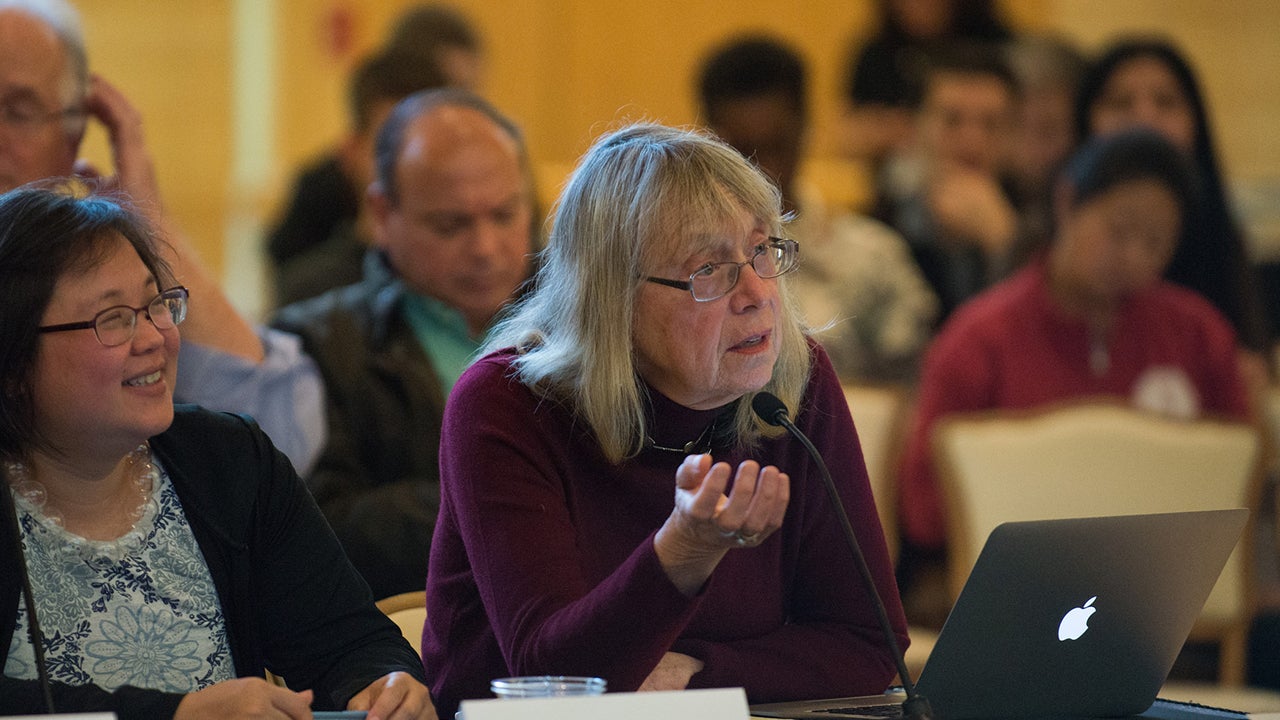The Knight Commission on Trust, Media and Democracy convened once more in Racine, Wisconsin, at the end of May. This was the fifth meeting of the Commission as they continue to explore the complex issues of trust in the major institutions of American democracy. Brought together by the Aspen Institute’s Communications and Society Program, in partnership with the John S. and James L. Knight Foundation, the Commission is charged with the mission of providing bold, achievable recommendations on how to course correct.
During the first meeting in October of last year in New York City, the Commission examined the declining state of trust in American institutions, such as the government, education, and the media, and its implication for democracy. Experts discussed how the increasingly digital media landscape has given individuals access to information sources that reinforce their own views rather than engaging in diverse dialogues. With perceptions of the mainstream media as “overwhelmingly liberal,” trust in traditional forms of news media amongst conservatives, in particular, is in decline.
In Palo Alto, the Commission confronted the ways in which trust is further threatened by the complex implications of a digital media landscape that relies on automation to aggregate massive bodies of data. Furthermore, experts from Silicon Valley explained the historical perspective of the tech industry regarding the ethics of its early development, while highlighting the importance of developing standards for digital literacies on a national level.
During a mini-workshop in Miami, in conjunction with the Knight Media Forum, the Commission discussed the significance of local journalism as a tool for community engagement and civic involvement. They heard from speakers whose work specialized in local media coverage through media outlets, such as print, digital, and radio. In particular, they explored alternative business models and sources of funding for improving the quality of journalism and considered avenues for scaling successful local models to the national level.
The Commission continued their work on digital literacy and youth education at their fourth meeting in Nashville. Here the Commission heard from experts on the need to revitalize sustainable local journalism through the development of scalable business models for quality digital journalism, as well as basic literacy levels amongst citizens through civic youth education. Check out Dana Coester’s, Creative Director of 100 Days in Appalachia, moving statement titled, “We’re not Winning,” here.
Lastly, in Racine, the Commission heard from Darryl Holliday, co-founder and lab director of Chicago’s civic journalism lab City Bureau, and Wisconsin’s State Assembly Speaker Robin Vos. Holliday provided the Commissioners insight on his experience on creating a “public journalism school” that has been training (and paying) neighborhood residents to become documenters of their community. By teaching residents to “become knowledgeable information gatherers,” the News Lab hopes to create a “new contract between journalism and the public [that] will frame journalism as an act of citizenship rather than an entity for and separate from citizens.”
On the morning of May 31, Speaker Vos addressed the Commission and spoke to the issue of media bias, trust, and democracy. You can listen and view his full remarks on the Aspen YouTube channel. The information and perspectives gained throughout the past year will now inform the Commission as they turn their attention to recommendation building and their final meeting in Aspen in July. For more information, please visit the Commission’s website and the Trust, Media and Democracy Medium Channel.


